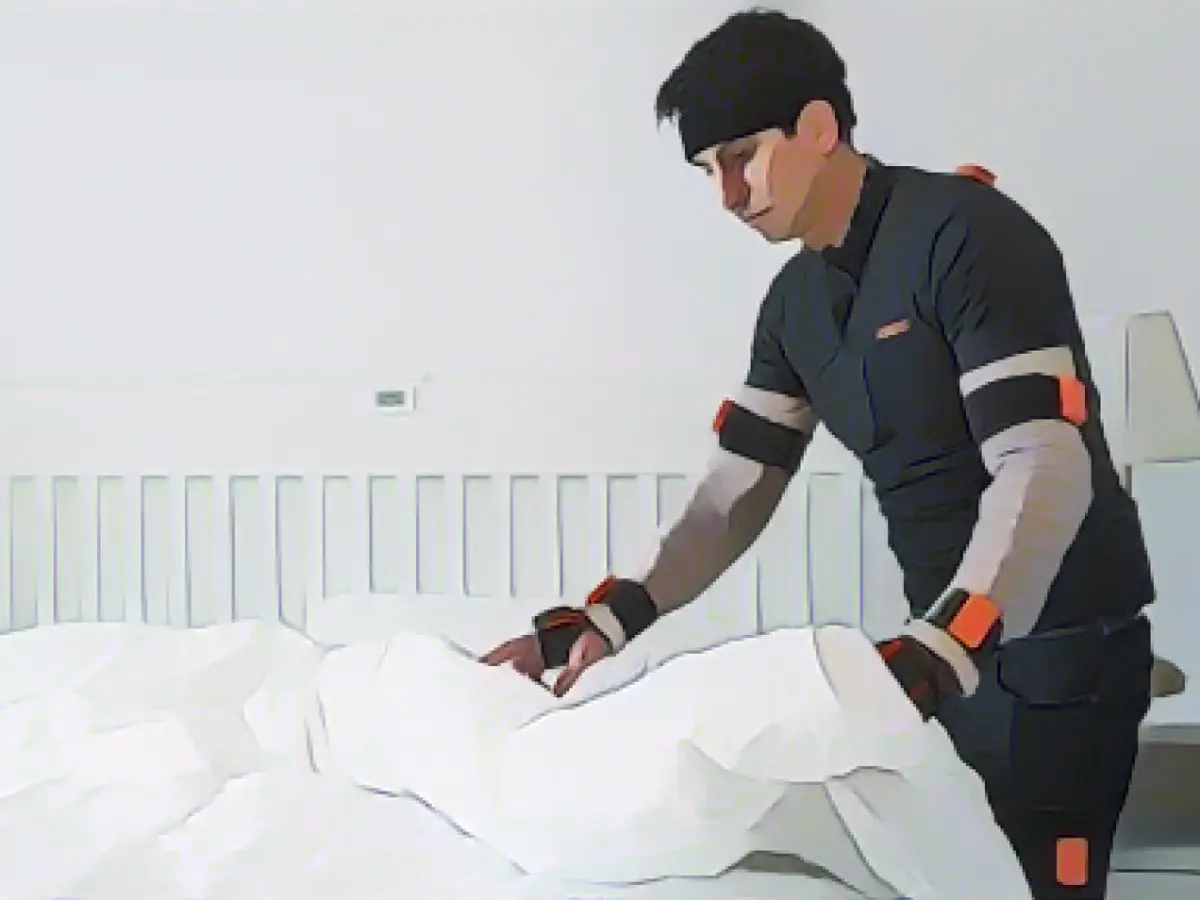Unraveling Human Behavior in Everyday Life: A University's AI-Powered Apartment Labs
Your typical day-to-day routine, from cleaning and cooking to watching TV and reading, is the focus of an intriguing research project led by the University of Bayreuth in Germany. By setting up laboratory spaces within two apartments in Kulmbach, the university aims to delve into human behavior using advanced artificial intelligence (AI) technology.
The project, spearheaded by Professor Aldo Faisal, holds a unique position in the academic world. Faisal chairs the professorship for Digital Health with a focus on data science at the University of Bayreuth and another professorship at Imperial College in London, specializing in AI and neuroscience. The discoveries from this study are expected to provide substantial insights into human health research, according to Faisal.
Each participant's daily activities are slated for analysis using AI, with data being collected discreetly using tools such as real-sense cameras, intelligent body sensors, and radar sensors. Faisal assures that this is not the hallmark of a Big Brother scenario. Instead, the sensors are utilized to monitor aspects like air quality and chemical pollution, allowing researchers to paint a comprehensive picture of people's daily routines and their reactions to their environment.
Faisal was quick to highlight that this project is geared towards understanding the impact of various environmental factors on human behavior and does not involve invasive surveillance methods. He emphasized that the research questions are expansive, with potential focus areas including the influence of air pollution on energy levels, the effects of air pollution from home cooking on health, and viable methods to lower water consumption.
The potential for AI in the healthcare sector is immense, according to Faisal. AI-driven assessments demonstrate significantly more precision than traditional lab tests or doctor evaluations. Faisal suggests that AI's comparative accuracy—which examines each patient against their own evolving data rather than average lab values or a physician's own merits—opens up new possibilities for both personalized therapy and the development of tailored medications.
The Kulmbach laboratory is considered one of Europe's leading facilities for digital research in human behavior within residential settings, based on the University of Bayreuth's assertions.
Relevant Insights
Dr. Danielle Arigo's project at the University of Bayreuth focuses on reducing measurement reactivity in research assessing physical activities (PA) in various contexts. Although this project does not specifically focus on daily activities in apartments using AI, it provides valuable insights into measurement biases that may contribute to a more comprehensive understanding of human health across various scenarios.
Additionally, there are various research areas at the University of Bayreuth that specialize in health sciences and digital technologies with a potential for exploring human behavior and health in the context of AI-supported research. However, specific projects centered around daily activities in apartments are not directly detailed by the available sources.
Ah, the AI-driven exploration of human behavior! It's like having a silent partner tracking your every move in the comfort of your own humble abode, but with the promise of better understanding your health! And let's not forget the potential for an unrivaled precision in personalized therapy, shall we? No more à la carte doctor visits – what a world we're living in! Now, if only I could get that egg hearbeat sensor to work consistently on my left wrist. Damn those pesky body asymmetries!








